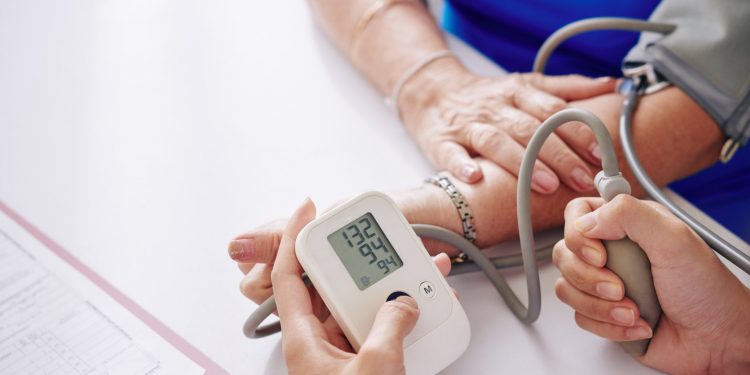Blood pressure is a critical health indicator that can provide insights into an individual’s overall cardiovascular health. It measures the force exerted by circulating blood against the walls of the body’s arteries, the primary blood vessels. Maintaining a healthy blood pressure is crucial, as abnormal levels can lead to severe health issues, including heart disease, stroke, and kidney failure. This blog aims to offer a detailed understanding of blood pressure, including its significance, how it’s measured, and ways to manage it effectively.
What is Blood Pressure?
Blood pressure is recorded with two numbers: systolic and diastolic. The systolic pressure (the first number) measures the pressure in your arteries when your heart beats, while the diastolic pressure (the second number) measures the pressure in your arteries between beats when the heart is at rest. Normal blood pressure is typically around 120/80 mmHg.
Importance of Maintaining Healthy Blood Pressure
Maintaining a healthy blood pressure level is vital for several reasons:
- Cardiovascular Health: Consistently high blood pressure can lead to the thickening and stiffening of the arterial walls, a condition known as arteriosclerosis. This can increase the risk of heart attacks and strokes.
- Organ Protection: High blood pressure can damage organs such as the heart, kidneys, brain, and eyes. For instance, it can cause the heart to enlarge, leading to heart failure, or damage the kidneys, leading to kidney failure.
- Preventing Strokes: Elevated blood pressure is a significant risk factor for strokes. It can cause blood vessels in the brain to burst or clog, leading to a stroke.
Causes of High Blood Pressure
Several factors can contribute to high blood pressure, including:
- Genetics: Family history plays a crucial role in determining an individual’s risk.
- Diet: High salt intake, low potassium intake, and excessive alcohol consumption can raise blood pressure.
- Lifestyle: Lack of physical activity, smoking, and chronic stress are significant contributors.
- Weight: Being overweight or obese increases the risk of high blood pressure.
- Age: Blood pressure tends to increase with age as the blood vessels gradually lose their elasticity.
Symptoms and Diagnosis
High blood pressure is often called the “silent killer” because it typically has no symptoms until significant damage has occurred. When symptoms do occur, they may include headaches, shortness of breath, or nosebleeds. However, these symptoms are not specific and usually do not occur until blood pressure has reached a life-threatening stage.
Regular monitoring is essential to diagnose high blood pressure. Blood pressure can be measured using a sphygmomanometer, and readings are usually taken in a clinical setting or at home using automated devices.
Managing Blood Pressure
- Lifestyle Modifications
- Diet: Adopting a heart-healthy diet, such as the DASH (Dietary Approaches to Stop Hypertension) diet, which emphasises fruits, vegetables, whole grains, and lean proteins, can significantly lower blood pressure.
- Exercise: Regular physical activity, such as 150 minutes of moderate-intensity aerobic exercise per week, can help reduce blood pressure.
- Weight Management: Maintaining a healthy weight is crucial. Even a modest weight loss can have a significant impact on blood pressure levels.
- Limit Alcohol and Quit Smoking: Reducing alcohol intake and quitting smoking can improve overall cardiovascular health and lower blood pressure.
- Medications
When lifestyle changes are not enough, medications may be prescribed. These can include:
- Diuretics: Help the kidneys remove sodium and water, reducing blood volume.
- Beta-blockers: Reduce the heart rate and the heart’s output of blood.
- ACE inhibitors: Help relax blood vessels by blocking the formation of a hormone that narrows blood vessels.
- Calcium channel blockers: Prevent calcium from entering the heart and blood vessel cells, leading to lower blood pressure.
Normal Blood Pressure Range
General Blood Pressure Ranges
- Normal Blood Pressure: Less than 120/80 mmHg
- Elevated Blood Pressure: Systolic between 120-129 and diastolic less than 80 mmHg
- Hypertension Stage 1: Systolic between 130-139 or diastolic between 80-89 mmHg
- Hypertension Stage 2: Systolic at least 140 or diastolic at least 90 mmHg
- Hypertensive Crisis: Systolic over 180 and/or diastolic over 120 mmHg, requiring immediate medical attention
Note: These are general guidelines. Individual blood pressure can vary.
Understanding and managing blood pressure is crucial for maintaining overall health and preventing serious health complications. By adopting a healthy lifestyle, regularly monitoring blood pressure, and seeking medical advice when necessary, individuals can significantly reduce their risk of hypertension-related issues. Taking proactive steps towards a healthier lifestyle not only helps in controlling blood pressure but also contributes to a better quality of life and longevity. Remember, knowledge is power, and being informed about your health is the first step towards taking control of it.









